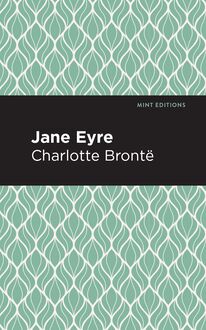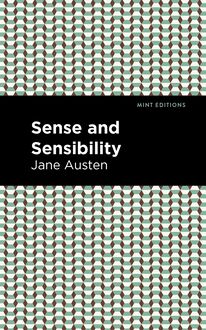-
 Univers
Univers
-
 Ebooks
Ebooks
-
 Livres audio
Livres audio
-
 Presse
Presse
-
 Podcasts
Podcasts
-
 BD
BD
-
 Documents
Documents
-
- Cours
- Révisions
- Ressources pédagogiques
- Sciences de l’éducation
- Manuels scolaires
- Langues
- Travaux de classe
- Annales de BEP
- Etudes supérieures
- Maternelle et primaire
- Fiches de lecture
- Orientation scolaire
- Méthodologie
- Corrigés de devoir
- Annales d’examens et concours
- Annales du bac
- Annales du brevet
- Rapports de stage
La lecture à portée de main

Vous pourrez modifier la taille du texte de cet ouvrage
Découvre YouScribe en t'inscrivant gratuitement
Je m'inscrisDécouvre YouScribe en t'inscrivant gratuitement
Je m'inscrisEn savoir plus
Vous pourrez modifier la taille du texte de cet ouvrage
En savoir plus

Description
The Twelfth Hour (1907) is a novel by Ada Leverson. Having established herself as a journalist and short story writer, Leverson published her debut novel to moderate acclaim. Entertaining and effortlessly witty, Leverson’s prose paints a stunning portrait of the Edwardian era, a time when hope and relative peace proved prosperous for many. Often compared to her close friend Oscar Wilde, Leverson, a pioneering Jewish woman, remains a unique and refreshing voice in English literature. Felicity, Sylvia, and Savile Crofton all feel the pressure placed on upper-class youths to marry wisely. At 25, Felicity appears to have found herself a good husband, a man of wealth and social standing who on closer appearance seems more interested in leisure than love. Determined not to fall into a similarly unhappy marriage, her 20-year-old sister Sylvia hopes to thwart her father’s wish that she marry millionaire Mr. Ridokanski. Although he is only 16, Eton student Savile is deeply in love with a famous opera singer—from a distance—but also feels obliged to entertain the affections of Dolly Clive, a girl his own age. Finding company in their own unique miseries of the heart, the Crofton siblings hatch a plan to achieve happiness for themselves, satisfaction for their father, and whatever it is young people are meant to owe to society. The Twelfth Hour is a humorous tale of romance and desire from Ada Leverson, an underappreciated novelist of the Edwardian era. With a beautifully designed cover and professionally typeset manuscript, this edition of Ada Leverson’s The Twelfth Hour is a classic work of British literature reimagined for modern readers.
Sujets
Informations
| Publié par | Mint Editions |
| Date de parution | 28 mai 2021 |
| Nombre de lectures | 0 |
| EAN13 | 9781513288154 |
| Langue | English |
| Poids de l'ouvrage | 1 Mo |
Informations légales : prix de location à la page 0,0500€. Cette information est donnée uniquement à titre indicatif conformément à la législation en vigueur.
Extrait
The Twelfth Hour
Ada Leverson
The Twelfth Hour was first published in 1907.
This edition published by Mint Editions 2021.
ISBN 9781513283135 | E-ISBN 9781513288154
Published by Mint Editions®
minteditionbooks .com
Publishing Director: Jennifer Newens
Design & Production: Rachel Lopez Metzger
Project Manager: Micaela Clark
Typesetting: Westchester Publishing Services
C ONTENTS I. F ELICITY II. T HE T RIALS OF W OODVILLE III. A L OVE S CENE IV. “A UNT W ILLIAM ” V. A RTHUR M ERVYN AT H OME VI. A N A GREEABLE R ATTLE VII. T HE N IGHT OF THE P ARTY VIII. F ELICITY AND H ER C LIENTS IX. A D INNER AT W ILLIS ’ S X. T HE T HIN E ND OF THE W EDGE XI. S AVILE AND S YLVIA XII. A T THE S TUDIO XIII. A T M RS . O GILVIE ’ S XIV. L ORD C HETWODE XV. M ADAME T USSAUD ’ S XVI. A G OLDEN D AY XVII. S AVILE T AKES A L INE XVIII. F ELICITY ’ S E NGAGEMENTS XIX. T HE V ELVET C ASE XX. Z ERO , THE S OOTHSAYER XXI. “T HE O THER G IRL ” XXII. S AVILE AND J ASMYN XXIII. S AVILE AND B ERTIE XXIV. T HE E XPLANATION XXV. T HE Q UARREL XXVI. V ERA ’ S A DVENTURE XXVII. A UNT W ILLIAM ’ S D AY XXVIII. T HE T WELFTH H OUR
I
F ELICITY
“Hallo, Greenstock! Lady Chetwode in?”
“Her ladyship is not at home, sir. But she is sure to see you, Master Savile,” said the butler, with a sudden and depressing change of manner, from correct impassibility to the conventional familiarity of a patronising old retainer.
“Dressing, eh? You look all right Greenstock.”
“Well, I am well, and I am not well, Master Savile, if you can understand that, sir. My harsthma” (so he pronounced it), “’as been exceedingly troublesome lately.”
“Ah, that’s capital!” Not listening, the boy—he was sixteen, dark, and very handsome, with a determined expression, and generally with an air of more self-control than seemed required for the occasion—walked up deliberately, three steps at a time, knocked, with emphasis, at his sister’s dressing-room door, and said—
“I say, Felicity, can I come in?”
“Who’s there? Don’t come in!”
Upon which invitation he entered the room with a firm step.
“Oh, it’s you, Savile darling. I am glad to see you! Dear pet! Come and tell me all about everything—papa and the party—and, look out, dear, don’t tread on my dresses! Give Mr. Crofton a chair, Everett. Even you mustn’t sit down on a perfectly new hat!”
Felicity was a lovely little blonde creature about twenty-five years old, dressed in a floating Watteau-like garment of vaporous blue, painted with faded pink roses. She was seated in a large carved and gilded chair, opposite an excessively Louis-Quinze mirror, while her pale golden hair was being brushed out by a brown, inanimate-looking maid. Her little oval face, with its soft cloudy hair growing low on the forehead, long blue eyes, and rosebud mouth, had something of the romantic improbability of an eighteenth-century miniature. From the age of two Felicity had been an acknowledged beauty. She profited by her grasp of this fact merely by being more frank than most charming people, and more natural than most disagreeable ones. With little self-consciousness, she took a cool sportsmanlike pleasure in the effect she produced, and perhaps enjoyed the envy and admiration she had excited in her perambulator in Kensington Gardens almost as much as her most showy successes in later life.
The most effective of these (so far) had been her marriage. Hopelessly bowled over, as he called it, by her detailed loveliness, and not even frightened by her general brilliance, Lord Chetwode had insisted on her making the match of the previous season. He was a good-looking, amiable, and wealthy young man, who was as lavish as if he had not had a penny, and who showed his extravagantly long descent chiefly by being (for a racing man) rather eccentrically interested in the subject of decoration.
He was an owner of racehorses and a collector of curiosities, and these tastes gave him certain interests apart from his wife. He was, however, very much in love with her, and showed it chiefly by writing her nearly every day long, elaborate, and conspicuously illegible love-letters. She was not an expert in handwriting, nor had she time or patience to decipher them. So she merely treasured them (unread) in a green and white striped silk box. For under all her outward sentimentality, Felicity was full of tenderness, especially for her husband. This was not surprising, for he was a most agreeable companion, a great friend, quite devoted to her, to his pretty home in London, and his picturesque old house in the country, from all of which, however, he was as a rule markedly absent. If one asked after Chetwode, the answer was nearly always that he was away.
He had chosen every detail of the house in Park Street with a patience worthy of his passion. In the bedroom, especially, not a concession was made, not a point stretched. All was purest Louis-Quinze. But in spite of this, and amidst all her tapestry and old French furniture, Felicity had a very contemporary air. About everything was the recent look characteristic of the home of a lately married couple. The room looked as if it had been decorated the day before for a twentieth-century Madame de Pompadour. But, if the background was almost arch æ ological, the atmosphere was absolutely modern. In this incongruity was a certain fascination.
Though the bridal freshness still lingered, a more wilful element was also observable. Invitation-cards, race-cards, the Daily Mail , magazines, English and French novels, and cigarettes were freely scattered about, and an expert would have seen at a glance that the dresses lying in every direction could not have formed part of any trousseau. They had obviously been chosen with (or against) the advice of Lord Chetwode.
Savile sat down on a pink curved sofa, and said definitely—
“Look here, Felicity, I want to speak to you.”
“Yes, darling?”
“Does Chetwode know what’s going to win the Cambridgeshire?”
“How can he know, darling? Would it be fair? Of course he has some vague idea . Candid Friend he said was the favourite. He says it’s a certainty. But his certainties! (Everett, look out. You’ve been overdoing the waving lately. Remember how careful I have to be not to look like a wax-doll in a hair-dresser’s shop… with my complexion)! Go on, Savile,—what’s the party going to be like?”
“Like nothing on earth, my dear, as usual. One of the governor’s baffling entertainments.”
“Well, I don’t care what people say, Savile! I think papa’s parties are the greatest fun one can get anywhere. It’s a wonderful mixture,—a sort of Russian salad. How exciting it is, for instance, never being quite sure whether one is going to be taken to dinner by—Lord Rosebery, or—Little Tich!”
“As it happens, my dear, they’ve both refused,” said Savile ironically.
“Oh, Savile, don’t be funny when I’ve no time to laugh. Do you deny papa’s peculiar talent for celebrities? Is De Valdez coming?”
“The Spanish composer? Oh, rather! He’s coming over about his new opera. He’s all right. At least, I bear him rather, but girls like him.”
“And who will be the great card this time, Savile?”
“Of course, Roy Beaumont, the inventor.”
“What on earth’s he invented?”
“Himself, I should think. He’s only about twenty-one. Roy’s a capital chap, really. The only thing is, he wears hats that he thinks suit him. Otherwise he dresses rather well, for a dandy.”
“Why on earth shouldn’t his hats suit him?” said Lady Chetwode in surprise.
“Oh, never mind! I can’t go into all that. Why, because you ought to wear things, because they’re right , not because—Oh, girls don’t understand dress! Don’t let’s fatigue ourselves discussing it. Any one can see you’ve never been to Eton.”
“Well, I should rather hope they could,” murmured Felicity, looking in the glass.
“F. J. Rivers and Arthur Mervyn, the actor, are coming, and—oh, a lot more.”
“I see, it’s a clever party. Isn’t it fun, Savile, being the only stupid person in a crowd of clever people? They make such a fuss about one. Aren’t any real people coming?”
“A few. Some heavy M.P.’s and their wives, and Aunt William, and of course old Ridokanaki.”
“Oh, the Greek millionaire,—the banker?”
“Don’t call him the banker; it reminds me of The Hunting of the Snark .”
Felicity laughed.
“Yes; Mr. Ridokanaki is rather like a sort of Snark, and you and papa are hunting him for Sylvia. Will it come off?”
“Shouldn’t think so,” said Savile thoughtfully. “He’s rather a bore, but he’s a good sort. Of course, Sylvia ought to marry him. All the pretty girls are marrying these Anglo-Aliens. He’s very keen. But about my affairs—I say, Everett, do take away these fluffy rustling things.”
Everett having completed her task, with a stiff smile, and a rainbow of chiffons over her arm, faded away.
Felicity, completely dressed, turned her chair round and put up her absurd little high-heeled shoes.
“Now then, fire away, old boy.”
Savile, taking this command literally, stretched out his hand for the cigarettes. Felicity snatched them away.
“How dare you! You won’t grow any more! Here, have a chocolate!”
Savile looked at her with a pitying smile and said slowly—
“What rot! Grow! As if I wanted to grow! As if I had the time! I’ve got more serious things than that to do I can tell you. I have two rather awful troubles. Look here. Things are a bit off at home just now. The Governor is furious about Chetwode not coming to the party.”
Lady Chetwode’s colour deepened.
“Well, what about me, Savile? Do you think I’m pleased? Is it my fault the Cambridgeshire’s run on Wednesday? Do be just to me! Do I make the racing engagements? You can’t pretend that I can alter the rules of Newmarket because papa chooses to give a lot of absurd parties!”
“I know, old girl—but can’t you make him give it up?”
“Who ever yet made Chetwode give up anything he wants to do? Besides, it’s not like a dinner-party, or his wedding, or anything like that, Savile, you know. After all, he isn’t b
Attention
En entrant sur cette page, vous certifiez :
- 1. avoir atteint l'âge légal de majorité de votre pays de résidence.
- 2. avoir pris connaissance du caractère érotique de ce document.
- 3. vous engager à ne pas diffuser le contenu de ce document.
- 4. consulter ce document à titre purement personnel en n'impliquant aucune société ou organisme d'État.
- 5. vous engager à mettre en oeuvre tous les moyens existants à ce jour pour empêcher n'importe quel mineur d'accéder à ce document.
- 6. déclarer n'être choqué(e) par aucun type de sexualité.
YouScribe ne pourra pas être tenu responsable en cas de non-respect des points précédemment énumérés. Bonne lecture !
-
 Univers
Univers
-
 Ebooks
Ebooks
-
 Livres audio
Livres audio
-
 Presse
Presse
-
 Podcasts
Podcasts
-
 BD
BD
-
 Documents
Documents
-
Jeunesse
-
Littérature
-
Ressources professionnelles
-
Santé et bien-être
-
Savoirs
-
Education
-
Loisirs et hobbies
-
Art, musique et cinéma
-
Actualité et débat de société
-
Jeunesse
-
Littérature
-
Ressources professionnelles
-
Santé et bien-être
-
Savoirs
-
Education
-
Loisirs et hobbies
-
Art, musique et cinéma
-
Actualité et débat de société
-
Actualités
-
Lifestyle
-
Presse jeunesse
-
Presse professionnelle
-
Pratique
-
Presse sportive
-
Presse internationale
-
Culture & Médias
-
Action et Aventures
-
Science-fiction et Fantasy
-
Société
-
Jeunesse
-
Littérature
-
Ressources professionnelles
-
Santé et bien-être
-
Savoirs
-
Education
-
Loisirs et hobbies
-
Art, musique et cinéma
-
Actualité et débat de société
- Cours
- Révisions
- Ressources pédagogiques
- Sciences de l’éducation
- Manuels scolaires
- Langues
- Travaux de classe
- Annales de BEP
- Etudes supérieures
- Maternelle et primaire
- Fiches de lecture
- Orientation scolaire
- Méthodologie
- Corrigés de devoir
- Annales d’examens et concours
- Annales du bac
- Annales du brevet
- Rapports de stage











